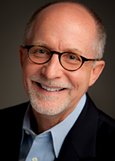Editorial: In the New Year, remember: The kingdom of heaven is at hand
A few weeks ago, our Bible study class wrapped up a survey of the Apostle Paul’s letters to his protégé Timothy. Although the epistles present advice to the young pastor in Ephesus, our class members are closer to the age Paul attained by the time he wrote them. It seemed we filtered our reading through the lenses of life experience. None of us has been beaten, run out of town or imprisoned for our faith. And I don’t think anyone has been shipwrecked or bitten by a snake. But you don’t reach our age without enduring heartaches, disappointments and grief.
 Editor Marv KnoxSo, we resonated with Paul’s concluding declaration of hope: “But the Lord stood with me and strengthened me, so that through me the proclamation might be fully accomplished, and that all the Gentiles might hear; and I was rescued out of the lion’s mouth. The Lord will rescue me from every evil deed, and will bring me safely to his heavenly kingdom; to him be the glory forever and ever. Amen” (2 Timothy 4:17-18).
Editor Marv KnoxSo, we resonated with Paul’s concluding declaration of hope: “But the Lord stood with me and strengthened me, so that through me the proclamation might be fully accomplished, and that all the Gentiles might hear; and I was rescued out of the lion’s mouth. The Lord will rescue me from every evil deed, and will bring me safely to his heavenly kingdom; to him be the glory forever and ever. Amen” (2 Timothy 4:17-18).
Bold words from a saint near the end of a hard life. Paul suffered mightily for the gospel. He lived a nomadic existence, subject to the perils of first-century travel. He felt the full weight of the Jewish religious hierarchy and the Roman government. Worse, he endured malicious disrespect from competitors within the church. By the time he penned these words, he was queued up in the Roman judicial system, heading for what he certainly knew would be martyrdom.
Yet all Paul saw was God’s rescue and provision. He recalled not persecution and rejection, but gospel advance. Based on other passages, we know Paul expected to die soon. Still, he believed God would rescue him from “every evil deed” and deliver him to God’s “heavenly kingdom.”
God is present
Paul reminds us reality extends beyond what we see, past the tangible people, places, situations and events in our lives. God is present. Even amidst pain and disappointment. Even when we cannot see.
Hope puts its full weight down on God. It’s not wishing for desired outcomes. Hope is trusting God in all outcomes.
Not coincidentally, our class finished studying the Timothy letters on the second Sunday of Advent and immediately turned our attention to Christmas, when we celebrate the birth of Jesus, the Hope of the World.
Christmas delivers hope, but not because of the baby in the manger. Christmas delivers hope because God took on flesh and descended to Earth, incarnating—embodying—God’s presence among us. Jesus came to express God’s everlasting love to humanity. He came to provide an eternal bridge to that love by saving us from our sins and restoring our loving relationship with God.
The hope of Christmas is not the manger, but the cross.
And even though that hope is eternal, it’s also present. It’s not just the sweet bye-and-bye, but also the here-and-now. That’s good news as we enter a new year.
At least four times in the Gospels, Jesus declares: “The kingdom of God (or heaven) is at hand” (Matthew 3:2, 4:17, 10:7; Mark 1:15). To be sure, Jesus talked about eternity. But he insisted eternity already is present. Relationship with God is here. Now. Life change is available this moment. To demonstrate, he repeatedly healed the sick, fed the hungry and comforted the afflicted. He didn’t promise them a reward in another life; he relieved their suffering immediately. He delivered hope.
We will be judged by how we deliver hope
In one of his final teachings, Jesus said his followers will be judged by how well they bring kingdom reality to the hungry, the thirsty, the stranger, the naked, the sick and the prisoners (Matthew 25:31-46). We will be judged by how we deliver hope.
And that’s a strong admonition for Christians on the precipice of a new year. To be faithful to the Hope of the World, we must deliver hope to the world. Tangible hope. Spiritual hope.
The two are bound together. Tangible, physical hope is vital. And it also lends credence to spiritual hope.
Surveys of American adults consistently show most people think they’ll go to heaven, and few believe in hell. No wonder argumentative evangelism rarely produces new Christians. Most unbelievers see truth as relative; they’ll let you keep yours, but leave theirs alone. And you can’t scare hell out of them, because they think they’re heaven-bound.
So, we’ve got to show them exactly how the kingdom of heaven is at hand. Jesus explained: “And as you go, preach, saying, ‘the kingdom of heaven is at hand.’ Heal the sick, raise the dead, cleanse the lepers, cast out demons. Freely you received, freely give” (Matthew 10:7-8).
Throughout 2015, may we perpetually demonstrate the “at-handedness” of the kingdom of heaven. Present and the eternal hope hang in the balance.